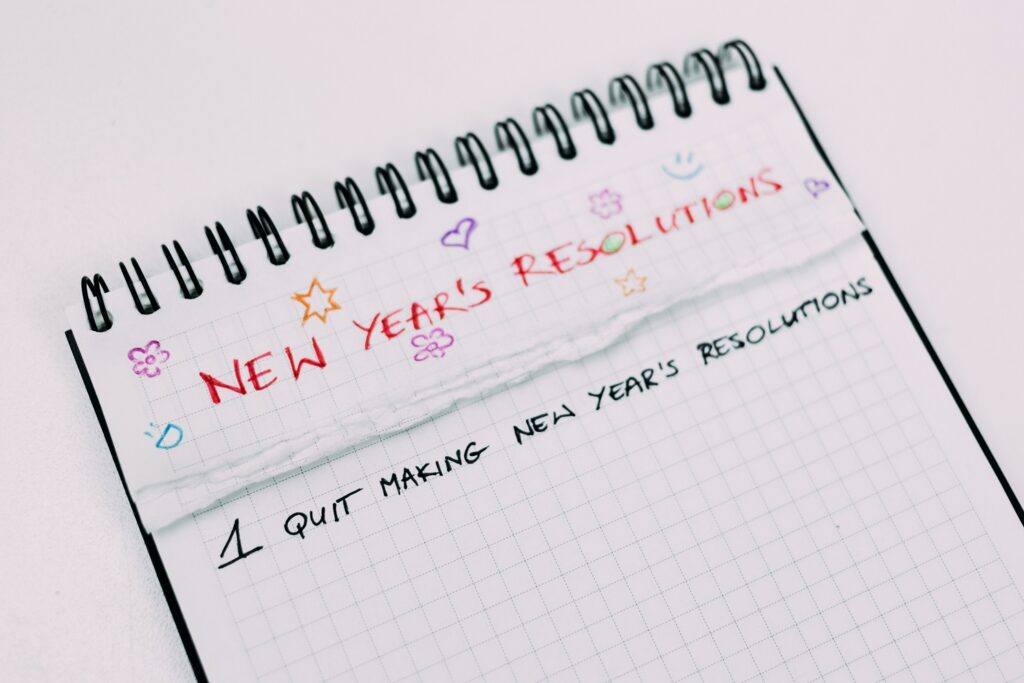Why you should skip your new year’s resolutions and do this instead…
New Year’s resolutions are a time-honored tradition. Every year, as the calendar turns over, millions of people take stock of their lives and set goals for themselves in the coming year. For many, this takes the form of a goal-oriented list: a set of specific, measurable, achievable, relevant, and time-bound (SMART) goals that they hope to accomplish in the coming year.
But while goal-oriented lists can be a useful tool for helping us focus our efforts and make progress towards our goals, they can also be limiting and unfulfilling if we rely on them too heavily. In this article, we’ll explore the pitfalls of goal-oriented lists and how replacing them with strong intentions can lead to greater success and fulfillment in the new year.
The Limitations of Goal-Oriented Lists
There are several limitations to goal-oriented lists that make them less effective than they might seem at first glance.
First, goals can be limiting because they focus on the end result rather than the journey. When we set a goal for ourselves, we tend to fixate on the outcome we want to achieve, rather than the process of getting there.
This can make it easy to get discouraged when we don’t see immediate progress, and can lead us to lose sight of the small wins and personal growth that are happening along the way.
Second, goals are often based on external measures of success. We might set a goal to lose weight, for example, because we believe that being thinner will make us happier or more attractive. But these external measures of success can be elusive, and relying on them can lead to a never-ending cycle of goal-setting and disappointment.
Finally, goals can be inflexible. Once we set a goal, we often feel pressure to stick to it no matter what, even if circumstances change or we realize that the goal isn’t as important to us as we thought. This can lead to a sense of rigidity and a lack of adaptability, which can be frustrating and unfulfilling.
The Power of Strong Intentions
So if goal-oriented lists have these limitations, what can we do instead? One option is to replace goals with strong intentions.
An intention is a guiding principle or purpose that directs our actions and shapes our choices. Unlike goals, which focus on the outcome, intentions focus on the present moment and the values that drive us.
One of the benefits of intentions is that they are flexible and adaptable. Instead of being tied to specific outcomes, intentions allow us to respond to changing circumstances and make choices that align with our values and goals. This can be especially helpful when it comes to Virtual Wellness and Workforce Wellness, as it allows us to be more attuned to our own needs and the needs of those around us.
Another benefit of intentions is that they can be more motivating than goals. When we set a goal, we often do so because we believe that achieving it will bring us some external reward, such as recognition, praise, or material rewards. But these rewards can be fleeting and may not provide the long-term satisfaction that we’re seeking. On the other hand, when we set an intention, we’re motivated by a deeper sense of purpose or meaning, which can be more enduring and fulfilling.
How to Set Strong Intentions
So how can you set strong intentions for the new year? Here are a few steps to get you started:
Reflect on your values. Take some time to think about what’s most important to you. What do you value most in your life? What do you want to prioritize in the coming year? Your intentions should be based on your values, so it’s important to take some time to clarify what those values are.
- Identify the essence of what you want. Once you have a clear sense of your values, think about the essence of what you want to achieve in the coming year. This might be something like “I want to cultivate more gratitude and joy in my life,” or “I want to be more present and mindful in my relationships.” This essence should capture the core of what you’re trying to achieve, without getting too specific or attached to any particular outcome.
- Take action. Once you have a clear intention, the next step is to take action. This might involve incorporating practices like breathwork or mindfulness into your daily routine, or seeking out opportunities to learn and grow. Whatever action you take, the key is to stay focused on your intention and let it guide your choices and actions.
- Practice self-compassion. As you work towards your intention, it’s important to be kind to yourself and remember that progress is a journey, not a destination. If you find yourself getting discouraged or feeling like you’re not making enough progress, try to remind yourself that you’re doing the best you can and that every small step is bringing you closer to your goal.
Conclusion
New Year’s resolutions don’t have to be about setting specific, measurable goals. By replacing goal-oriented lists with strong intentions, we can tap into a deeper sense of purpose and meaning, and find greater fulfillment and success in the new year. So this year, as you think about what you want to accomplish, try setting an intention instead of a goal. You might be surprised by the difference it can make.
Are goal-oriented New Year’s Resolutions holding you back? Learn how replacing them with strong intentions can lead to greater success and fulfillment in the new year. Explore the benefits of intentions can improve workforce wellness, and discover how to set and achieve your own strong intentions for the year ahead.


